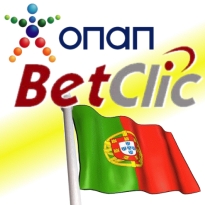 The Greek government has revived its oft-postponed plans to sell off major state-owned assets, including betting giant OPAP. An unidentified official told Reuters the sale of OPAP was among “the priorities in our privatization drive” and that the sale will “start” in early autumn. The government currently holds a 34% stake in OPAP, and is looking to sell off all but 5% of that.
The Greek government has revived its oft-postponed plans to sell off major state-owned assets, including betting giant OPAP. An unidentified official told Reuters the sale of OPAP was among “the priorities in our privatization drive” and that the sale will “start” in early autumn. The government currently holds a 34% stake in OPAP, and is looking to sell off all but 5% of that.
BetClic Everest Group has bought out the 33.3% chunk of Mangas Everest that it didn’t already own. Betclic purchased 60% of the Everest online poker and casino business from GigaMedia in December 2009, further boosting its stake to 66.6% in May of this year. Continued revenue shortfalls at GigaMedia apparently convinced the company it needed to realize some quick cash.
Meanwhile, Ricardo Domingues, BetClic Everest’s regional director for Southern Europe and Latin America, has left the company after a five-year tenure. Unnamed sources told eGamingReview that Domingues’ departure was down to “strategic differences” with CEO Ignacio Martos. BetClic Expekt’s head of strategic campaigns and advertising operations, Geronimo Pirro, will inherit Domingues’ portfolio. Part of Domingues’ mandate at BetClic had been overseeing operations in Portugal, a role that became redundant after the company lost a legal fight in March with Portuguese online betting and lottery monopoly Santa Casa de Misericordia de Lisboa (SCML). The ruling prevented BetClic from advertising within Portugal, which prompted BetClic to quit the country a week later.
Despite SCML’s hostility toward international operators, Portuguese legislators had previously expressed their determination to start collecting online gambling taxes in 2012. Whether that remains possible is unclear, but Daily News Portugal reported on Friday that a special inter-ministerial committee had sent legislators a 372-page report containing three proposals for regulating the online gambling market. The choices are (a) complete liberalization, (b) continuing the existing system, in which SCML and the country’s brick and mortar casinos split the online and land-based gambling; or (c) a liberalization of the online sports betting, horseracing and poker market in which SCML would be responsible for both the issuing of licenses and regulation of licensed operators. The latter option is apparently the one most favored by the committee. Following the government’s selection of one of these options, it will then be sent to Parliament for approval.





